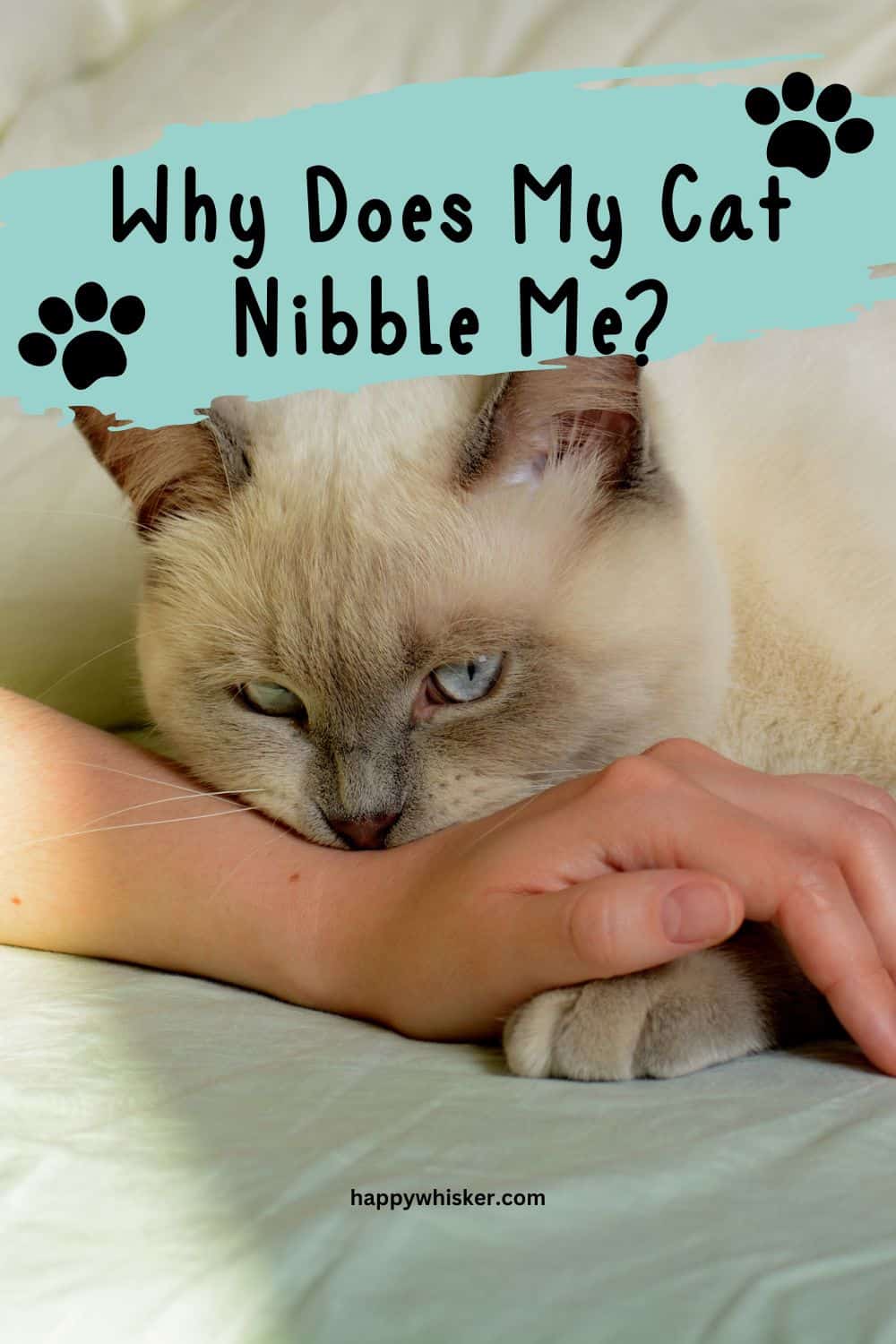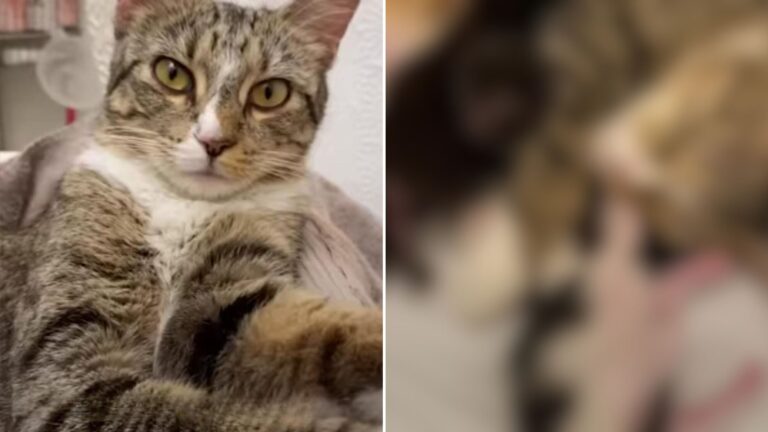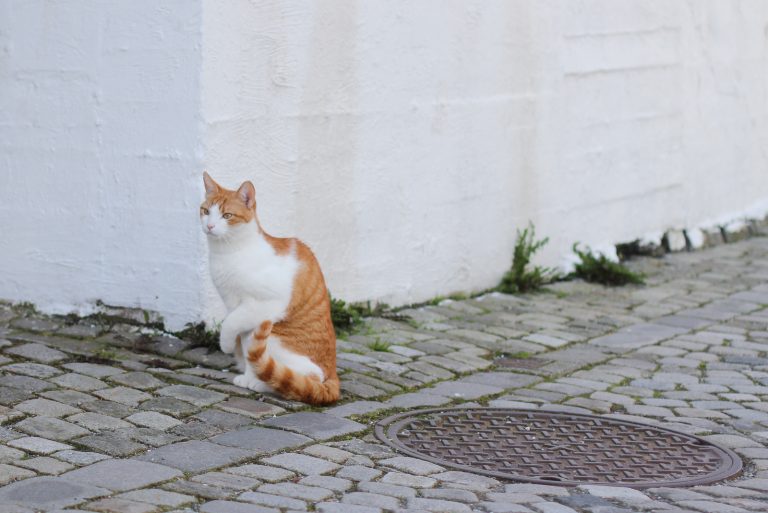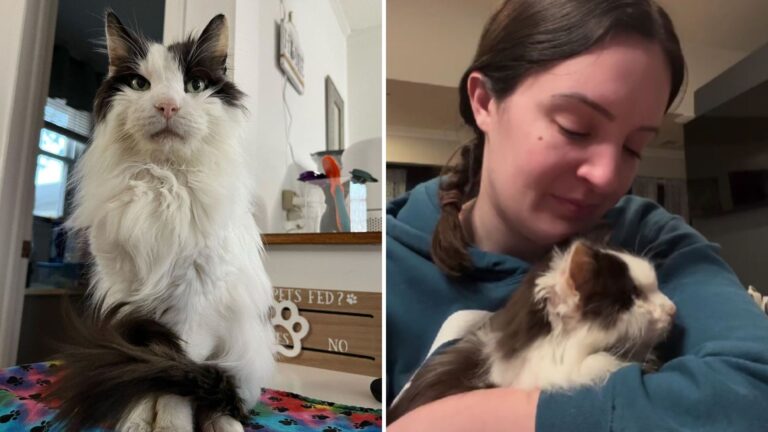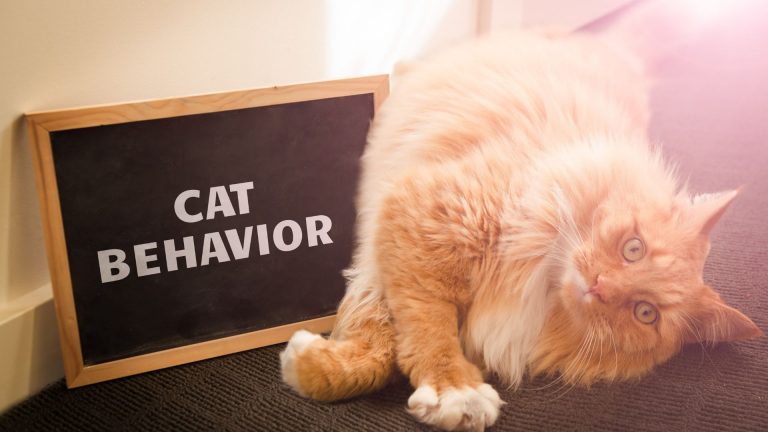Why Does My Cat Nibble Me? Why Do We Say Love Bites?
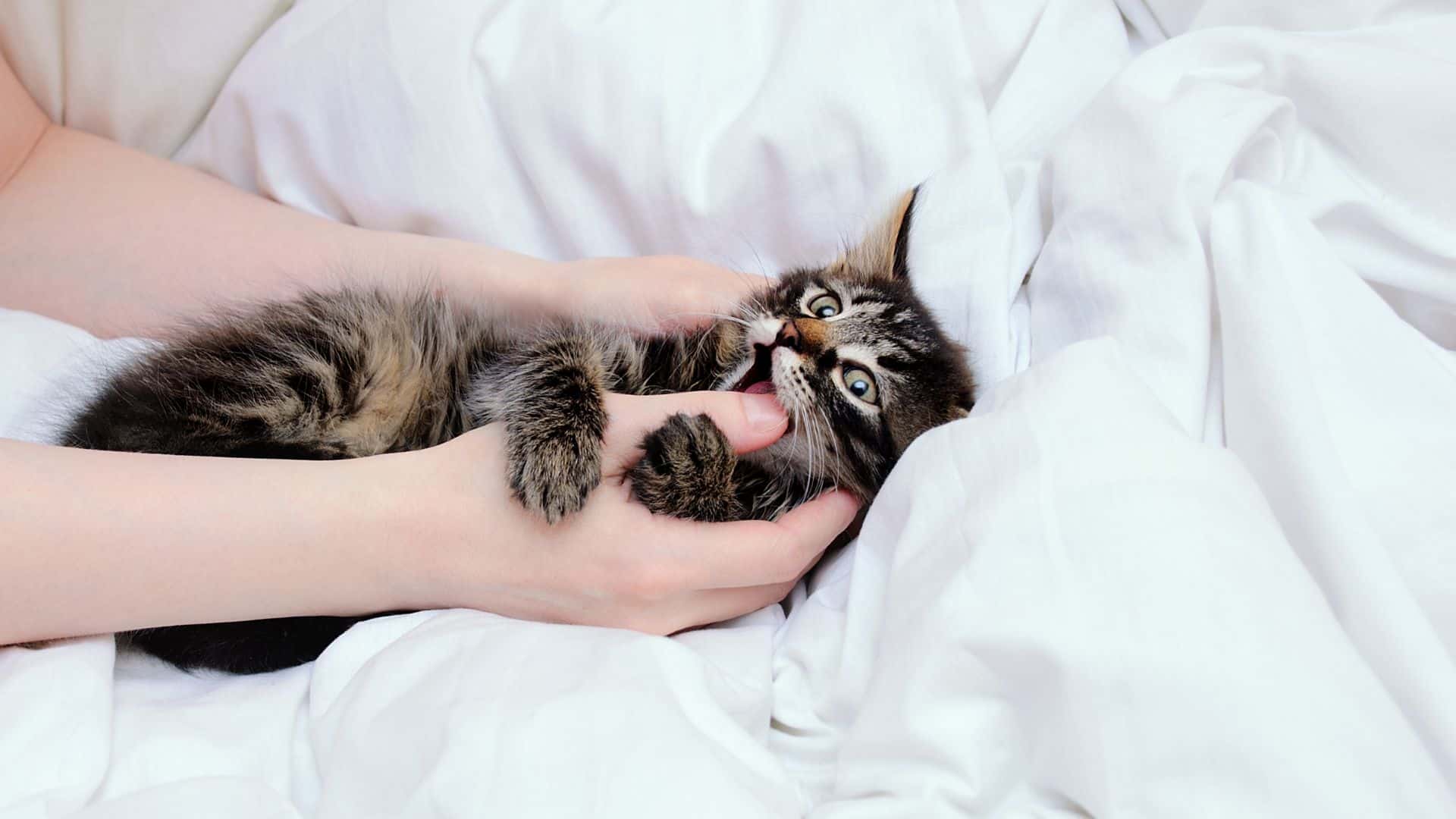
Cats show affection in ways that go unnoticed by their owners because some people aren’t sure how exactly cats show affection.
We often miss these special moments because cats express their love in very different ways than people and other pets, and they do it in many ways. But if you want to know if your cat loves you, you’ll be relieved to learn that it does!
Although they show it in an unusual way, it is still meaningful. I was surprised when I first asked why does my cat nibble me and found out what their nibbles mean. Read on and learn more about it!
Why Does My Cat Nibble Me?
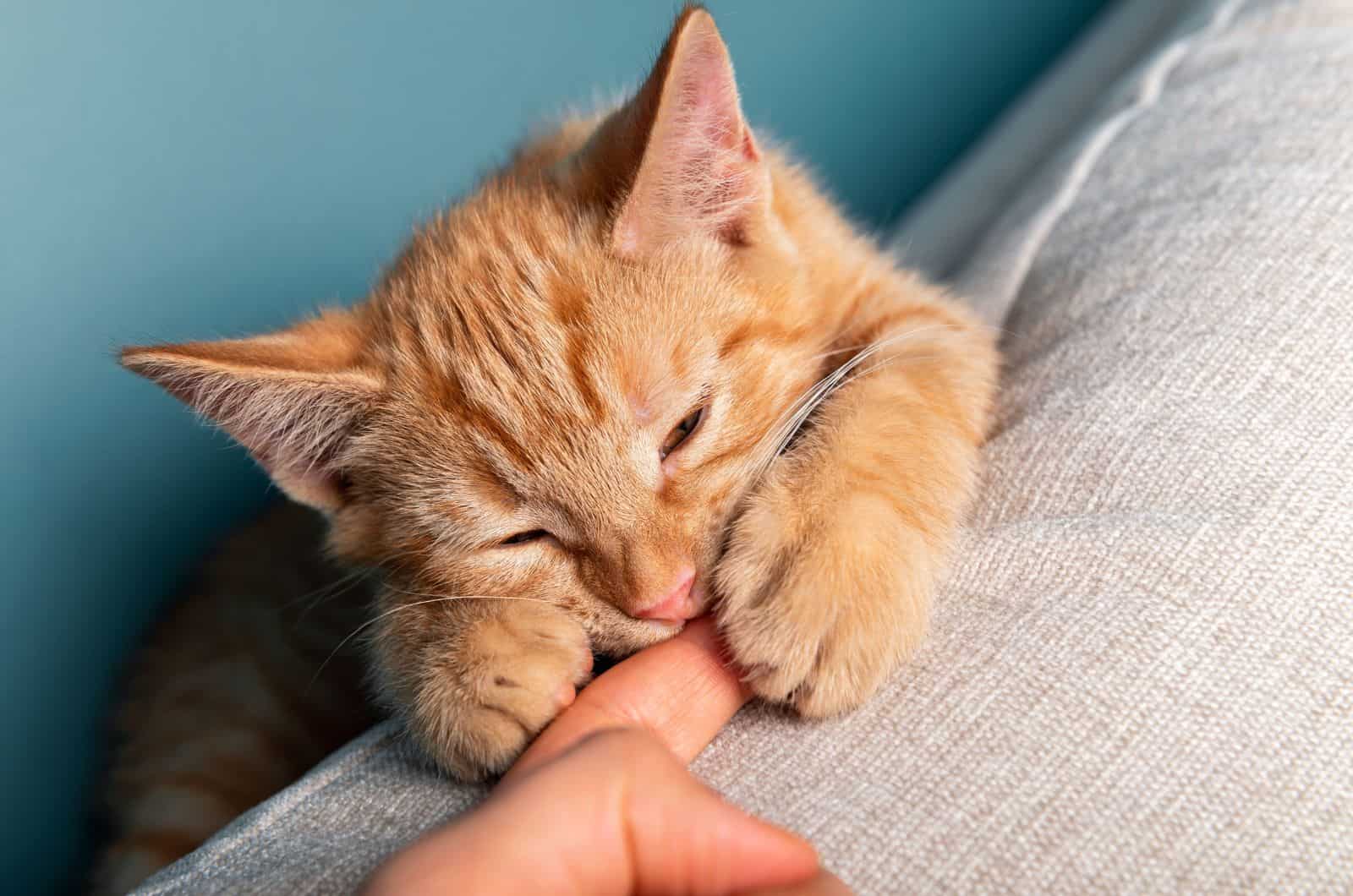
When it comes to bites and nibbles, there can be many different meanings. There are different reasons for cat nibbles, depending on the context of the bite or the cat’s emotional state.
Nibbling is a common behavior in cats, and it’s most likely just their way of saying they want more cuddles. However, I know this can seem strange at first. When I first experienced it, my cat did this out of nowhere, I was stunned.
I was petting my cat, and all of a sudden, he grabbed my hand and bit it. I immediately stopped petting him and got up. He just looked at me strangely after that, and later on, we cuddled again.
This was back in high school, so I didn’t really know anything about cat behavior. My dad and I talked to a vet the day after because we didn’t know whether this meant something bad.
The vet still examined my cat, even though he explained that it’s perfectly normal and cats mostly do it out of love.
Check out: 7 Reasons Why Does My Cat Headbutt Me Then Bite Me
Kittens And Human Interaction
If you own a kitten, it might just be that it’s too young or it’s teething, so nibbling on your fingers is a way to deal with pain or attempt some form of communication with you. Perhaps your kitten sees you and bites you just like it would do to its mother cat.
However, don’t ignore this cat’s behaviour. If your kitten bites you, you should help and train him/her as a form of redirection so your kitten doesn’t form a habit of biting. You can redirect these nibbles to interactive toys or treats to chew on.
Why Do We Call It Love Bites If My Cat Bites Me?
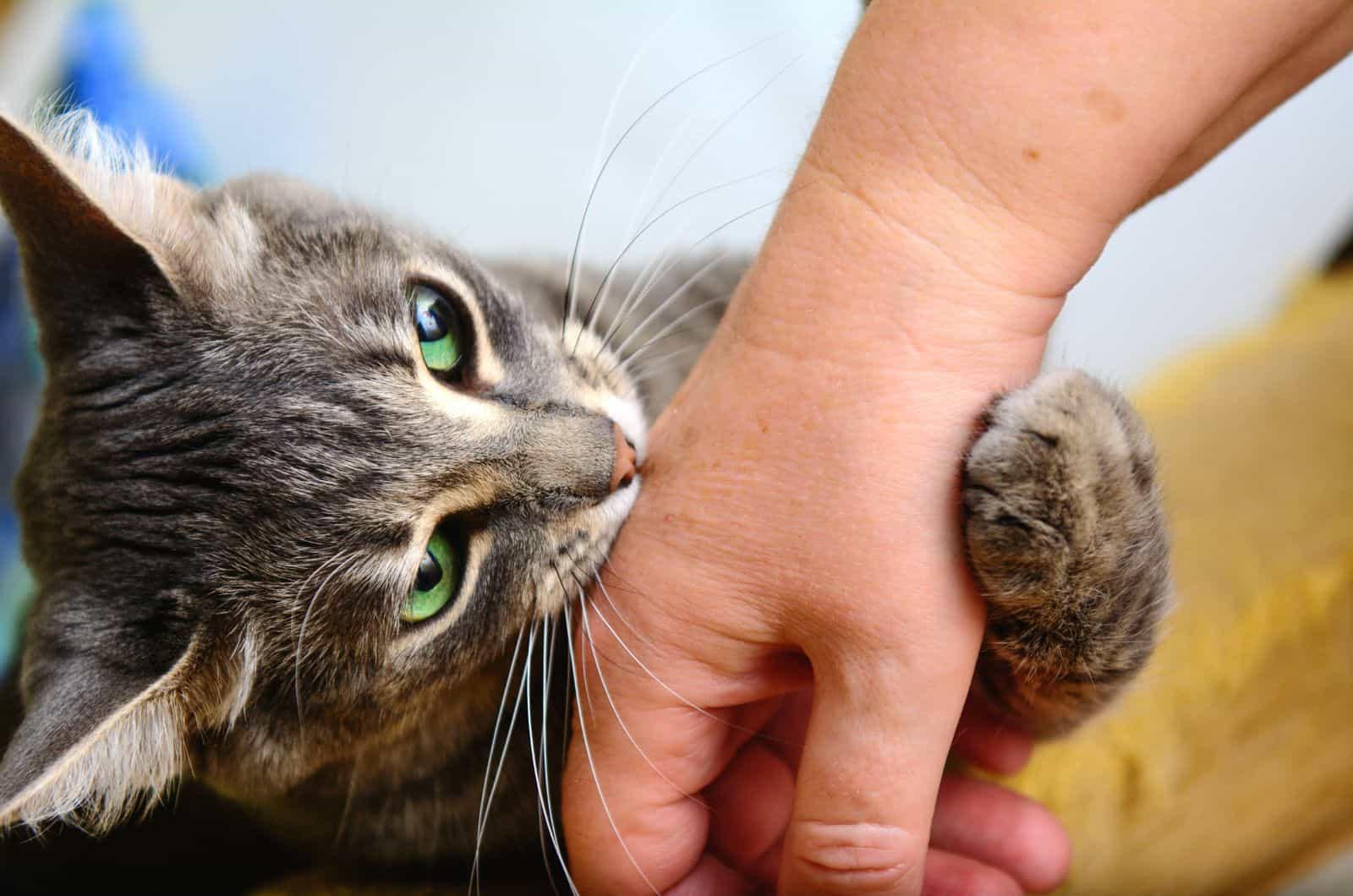
These gentle bites are referred to as ‘love bites’ because they’re usually soft and quick. It’s mostly just a small nibble or a quick bite, which is very common for cats.
Just like it’s common for your cat to grab your hand with its paws, you know when it purrs and grabs your hand with its front paws and kicks it with its back paws in the middle of playtime.
Your cat doesn’t want to injure you but rather show you what it wants. A cat’s body language is extraordinary, and sometimes it’s hard to recognize these little signs. So here are six common explanations for why your cat nibbles you.
1. Sign Of Affection, Aka The Love Bite
This is probably the most obvious reason behind cat nibbles, which is also why it’s called love biting.
You may not be familiar with the fact that biting is a sign of affection, but it’s perfectly normal for cats. Your cat will appreciate you and your interaction on a new level and may want to play a little.
You might also want to read: Why Is My Cat Chuffing?
2. Your Cat Hints At Overstimulation
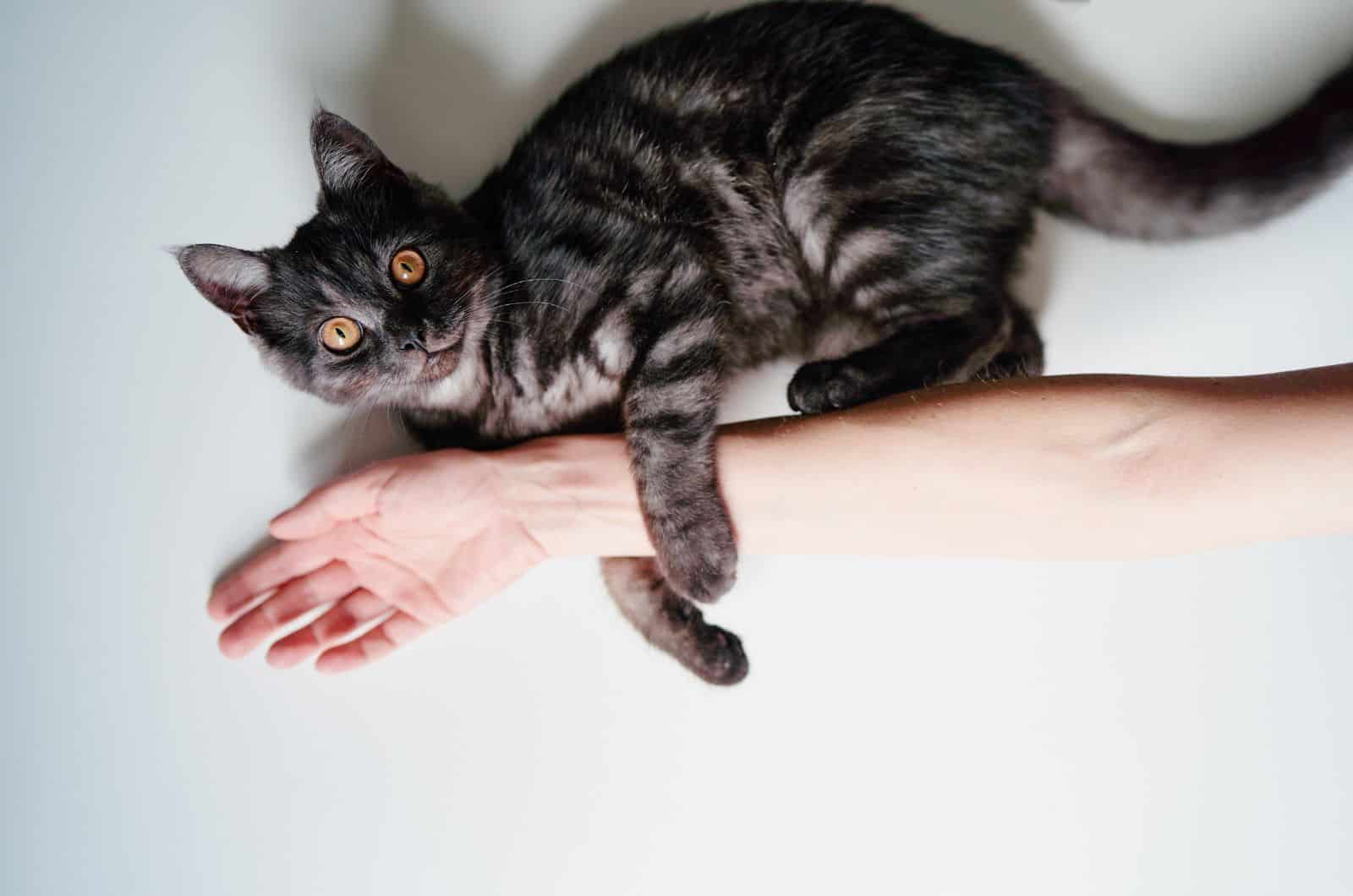
Cats can be pretty unpredictable, they enjoy your cuddles to a certain point, then they don’t enjoy them anymore. Your cat basically enjoys being petted, but it may just be trying to tell you when is enough, or your cat isn’t in the mood for petting right now.
You may be petting your cat too much, being too aggressive, or being too fast. When interacting with a new cat, it’s a good idea to approach it slowly and learn its body language as you pet the cat so that you can better understand the cat’s likes and dislikes.
3. Signs Of Discomfort In One Part Of Cat’s Body
Your cat might simply dislike having certain parts of its body petted. Most cats prefer to be scratched behind their ears or under the chin rather than you scratching their bellies or touching their tails.
If this behavior is present when you pet your cat on its belly, you should consider switching your daily scratches and cuddles to another part of your cat’s body. Then you’ll see if your cat will chomp at you anymore.
4. “Human! Feel My Jaws!”
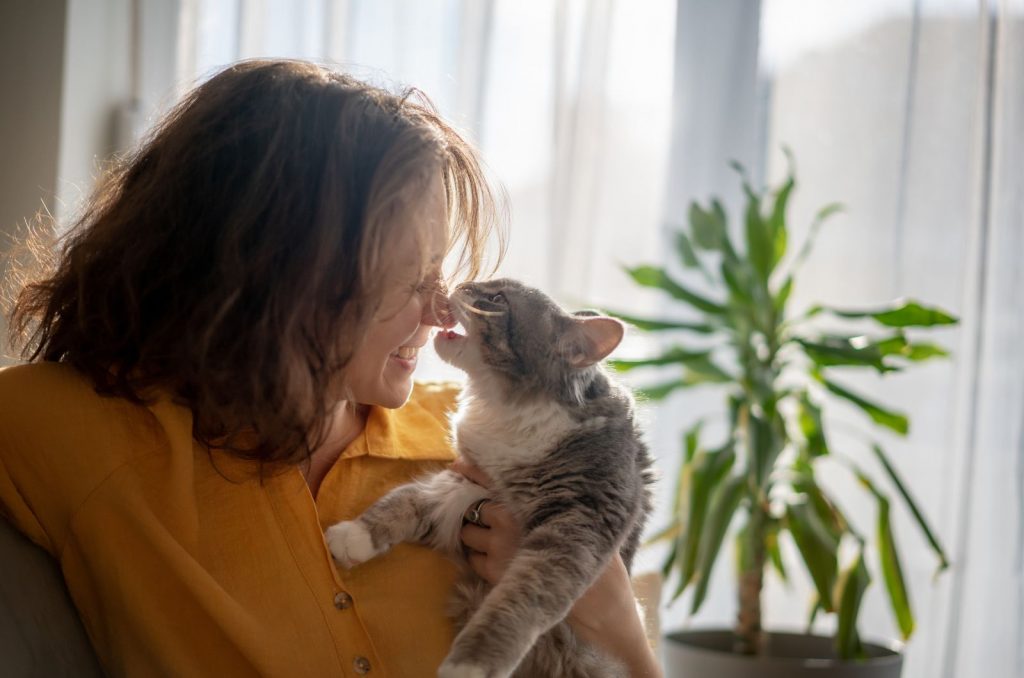
If you have a kitten or a young cat, the nibbling may be caused by teething. Kittens, like human children, lose their baby teeth to make way for adult teeth.
Kittens typically get their baby teeth between the ages of 2 and 6 weeks and their adult teeth between the ages of 3 and 7 months. Teething is characterized by chewing on various objects, drooling, more meowing, and appetite loss.
5. Nibble The Stress Away
Cats, like humans, can become tense or stressed. If it is stressed, it may resort to coping mechanisms. Chewing or nibbling softly on their owners may help some cats reduce anxiety and deal with stress.
See also: Why Do Cats’ Tails Puff Up? 7 Reasons That Might Surprise You
6. May I Have Your Attention Please
Your cat may simply want your attention, whether it is for food or for love. Set aside some time each day to connect with your cat so that it gets more than enough play and socialization.
You could even interpret love bites as a sign that your cat wants to play hide and seek, or cat and mouse, with you.
How To Recognize Signs Of Aggression
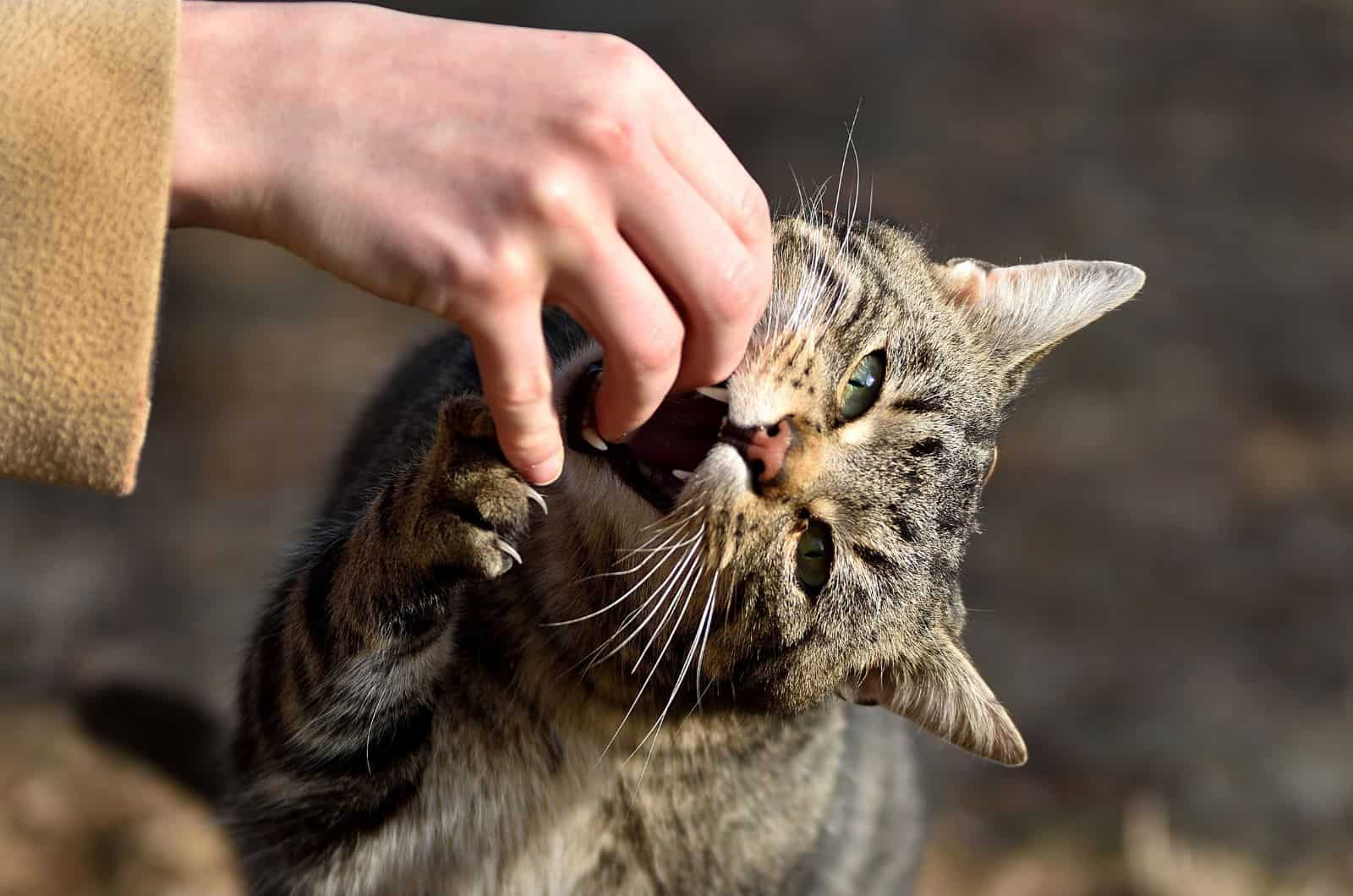
If your cat attacks you, it is most likely defensive behavior from fear, anxiety, or stress. You’ll definitely realize the difference between ‘love bites’ i.e. soft nibbles, and aggressive behavior.
Recognizing your cat’s calming cues can help prevent potential aggression, but it’s more important to know why your cat is feeling unsafe.
If you don’t feed your cats enough or you feed them infrequently, their meal times may feel unstable, and they may attack you when you approach their food bowl.
Any major change in your home, such as a renovation or the arrival of a new family member, can cause anxiety and stress. Even physical illness can result in aggressive behavior.
For these reasons, you should go to the vet to rule out health problems and talk about why your cat is aggressive. This is best done with the help of a vet or additionally a cat behaviorist.
So, Nibbles Or Aggression?
The best way to discern cat nibbles from aggressive cat behavior is if cat bites are accompanied by clawing and scratching at you.
If this happens with your cat, you should restrict your cat’s area around the house and provide it with a safe spot somewhere enclosed. Your cat will start purring again in no time, maybe it just needs a little privacy away from its pet parents.
Other Reasons Cats Bite You
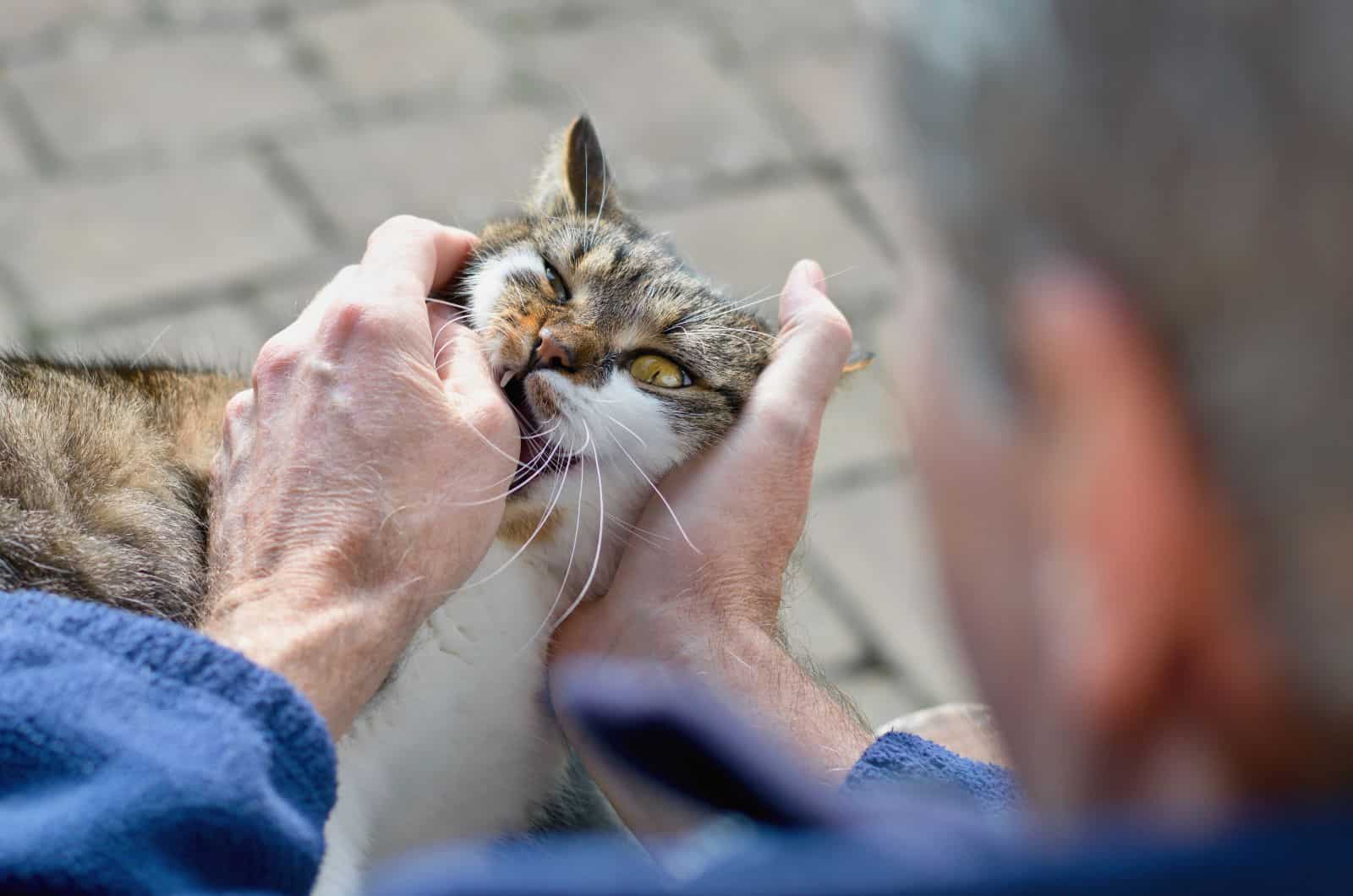
Some cats like endless petting behind their ears or on their backs, while others hate it. You need to learn to communicate with your cat so you know when your cat is angry or just warning you that it’s enough petting.
If you’re petting a cat and suddenly it bites your hand, something is wrong. It’s probably that you’ve been petting your cat too much. In these situations, it’s best to stay still and wait for the cat to shift its attention elsewhere.
Stop petting and try to maintain a calm and peaceful mood. This can happen when your cat licks you and then bites you, as it may be part of your cat’s grooming session.
It’s important to pay attention to your cat’s body language. If you pay attention, you’ll know if your cat is really angry or if they’ve simply had enough cuddle time.
Playtime Nibbles
Many cat owners train their kittens to play with their hands, cat toys actively, and a variety of other items.
If you reward this behavior, especially playing with your hands, you are inviting future bites and scratches from your adult cat. Your cat won’t realize it is hurting you.
If you were unable to prevent it and your adult cat is now engaging in this behavior during playtime, you must make an effort to change it. To do so, always play with your pet using toys rather than your hands, and you can reward with yummy cat treats.
Most cats can be trained easily to use the litter box, to meow on command, and they can also be taught to stop unnecessary biting.
Some cat toys, such as hanging mice or dusters, are great at diverting your cat’s attention due to their material or sound, and you should start with these.
Check out: Why Do Cats Carry Toys And Meow?
Happy Nibbles
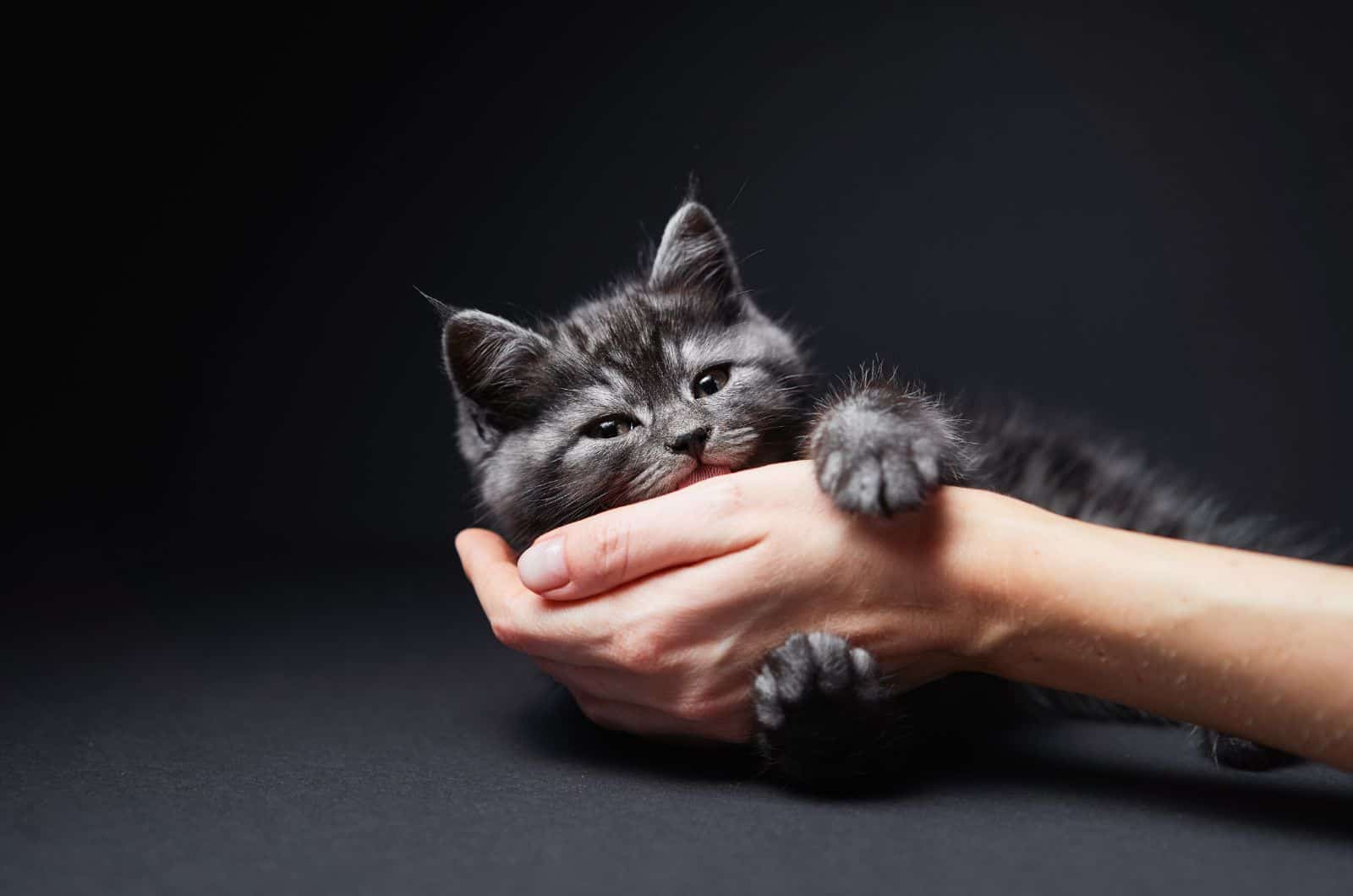
Maybe you haven’t noticed this before, but cats like to chew on your legs, arms, and hands when they’re happy, such as when you’re bringing them cat food or stroking them.
These bites are typically minor and painless (though they may hurt if the cat is overly excited) and are usually caused by the high energy and joy that cats want to show.
In this case, you should decrease the amount of time you stroke your cat or even stop completely. Also, if your cat does not bite you during playtime, reward it with cat treats so that it can learn faster and behave properly.
Scared Nibbles
Cats may bite if they are afraid, threatened, or in danger. Although they prefer to use their claws, they will also bite. The ears of a scared cat are pulled back, and your cat might even hiss, similar to angry cat behavior.
There are times when you won’t be able to figure out why your cat is pouncing and biting you. This is when you should consult with specialists such as cat behaviorists.
It is critical to understand that an aggression problem must be addressed, especially if you don’t know whether your cat will attack or not.
Even though most domestic cats are small, they can cause significant damage; don’t waste time and address the issue as soon as possible.
See also: How Long Will A Cat Hide If Scared Outside & How To Find It
Final Words
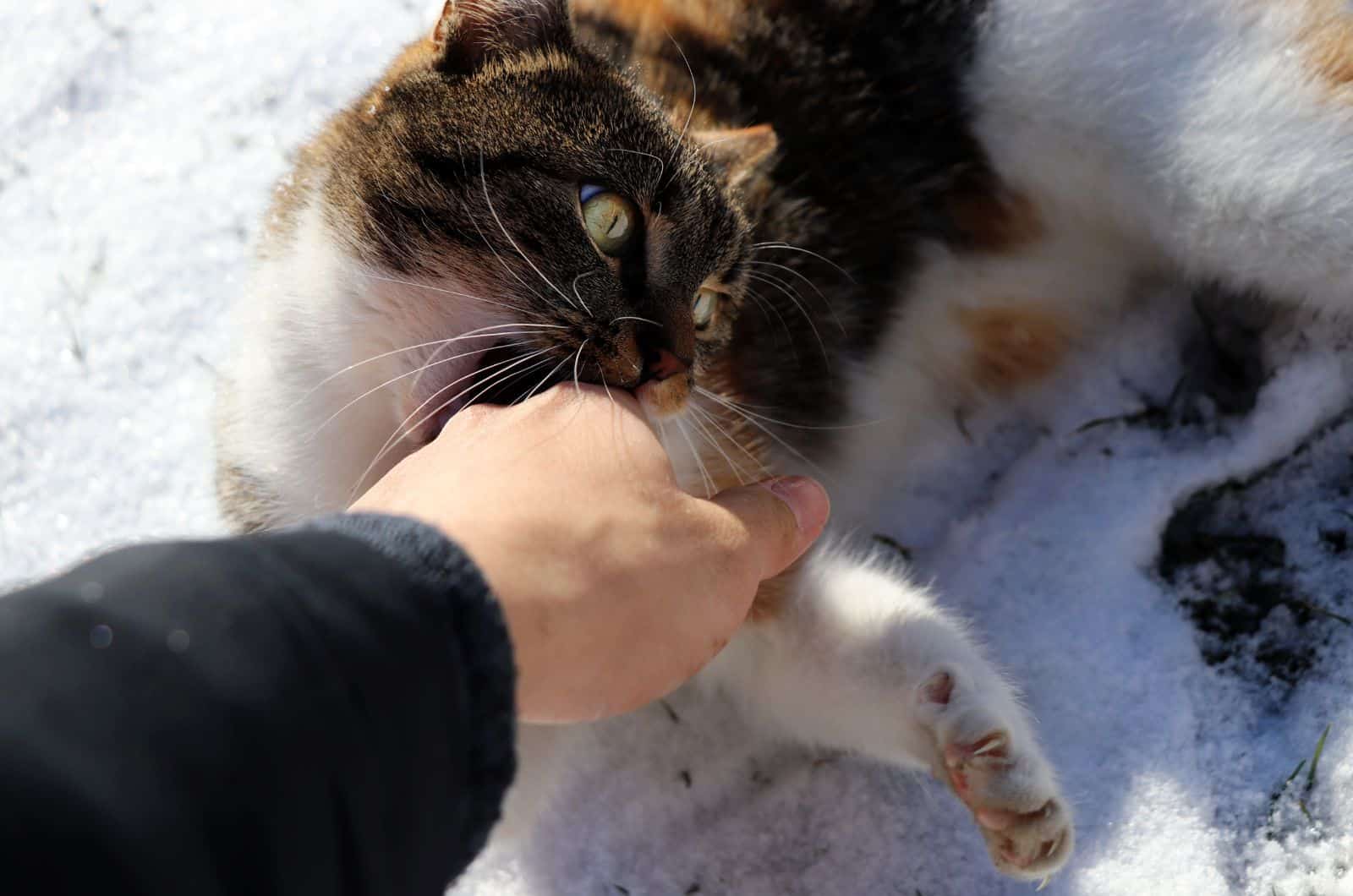
Biting is usually associated with negative emotions, but cats are a bit different. When your cat playfully nibbles you, she is expressing affection. There are different situations and reasons why nibbling can happen.
This is not the same as a frightened or defensive bite intended to cause harm, but there are distinct emotions associated with it. Love nibbles are a soft, amusing quirk of our adorable feline friends. Any sudden changes from harmless kneading to biting and scratching should, however, be discussed with your vet. All in all, I hope I’ve cleared it up and that you’ll know how to discern lovely nibbles from aggressive bites.
Like this post? Share or pin it for later!
